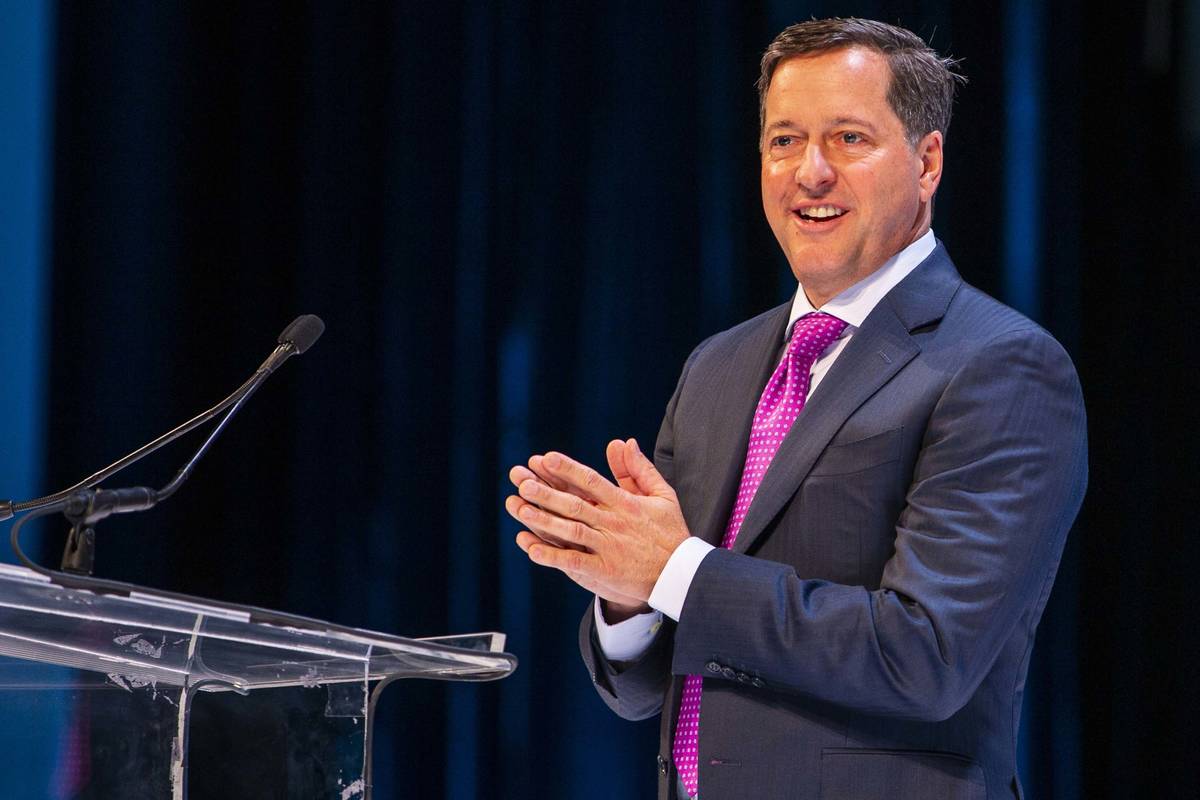AGA says small-business aid package will bypass gaming companies

Like every other Nevada business deemed non-essential, the nine-unit Distill taverns spread across the valley are closed.
And with those closures, more than 300 employees are furloughed, unpaid and won’t be able to return to work until the end of the month at the earliest.
There was a glimmer of hope for small businesses when lawmakers last week passed and President Donald Trump signed the Coronavirus Aid, Relief and Economic Security Act, providing $2 trillion in aid, including $349 billion in forgivable loans to small businesses to pay their employees during the COVID-19 crisis.
But then, the bad news: The CARES Act won’t allow companies that generate more than one-third of their revenue from gaming to apply for loans.
It’s a dilemma that frustrates Todd Nigro, president of Nigro Development, operator of the Distill chain.
“It seems inconsistent with the environment today given that gaming is so prevalent all around the country and yet at the same time, the CARES Act was intended to help all businesses that employ people,” Nigro said Friday. “We had to furlough over 300 people when we were required to close our doors due to national and state of Nevada directives.”
Now, the American Gaming Association is making the gaming industry’s case for being included in the program that has left out casinos, taverns and some gaming equipment manufacturers.
Eligibility guidelines for small-business loans would make one-third of businesses supported by gaming ineligible to participate in the newly established Paycheck Protection Program through the CARES Act, said Bill Miller, president and CEO of the Washington-based AGA.
“The AGA urges (Small Business Administration) Administrator (Jovita) Carranza to immediately correct this oversight and extend this needed relief to all of America’s small businesses and their employees, including those in the communities across 43 states that rely on our industry’s contributions,” Miller said Friday in a statement.
Trump signed the CARES Act, which includes the PPP provisions, into law on March 27, hours after the House approved it.
Loans from the program will be forgiven as long as the loan proceeds are used to cover payroll costs, and most mortgage interest, rent and utility costs over the eight-week period after the loan is made and employee and compensation levels are maintained.
But Miller said small gaming companies are being left out because SBA regulations revised and approved a year ago say small businesses that obtain more than one-third of their annual gross revenue for the prior year, including rental income, from legal gambling activities are not eligible.
The same regulations also prohibit companies involved in the state’s legal marijuana industry to benefit.
“In SBA’s efforts to quickly issue guidance on the PPP, they relied on antiquated, discriminatory regulations that ignore today’s economic reality and the congressional intent behind the CARES Act, which states that any business concern shall be eligible to receive an SBA loan if they meet specific qualifications regarding their number of employees,” Miller said.
“Unless amended, these initial guidelines will irreparably harm one-third of the U.S. casino industry and the hundreds of thousands of Americans that rely on gaming businesses for their livelihood,” he said.
To Nigro, the omission of the gaming industry is baffling.
“I believe that the intent of the act was to support all small businesses to keep their people employed,” Nigro said. “I don’t believe that anything I heard or actually read in the act indicates there are certain small businesses that might be precluded from benefiting from the Payment Protection Program. The SBA, in my understanding, is using something in the code that was done years ago when gaming was not near as prevalent as it is today to say that you can’t qualify for an SBA loan if your gaming revenues are over one-third of your total revenues.”
The AGA says small gaming businesses deliver $52 billion a year and support 350,000 jobs in construction, manufacturing, retail and wholesale firms.
The association says 987 of 989 commercial and tribal casinos properties have closed their doors in the past month to slow the spread of COVID-19. More than half of the 1.8 million jobs gaming supports are at non-gaming businesses — restaurants and local shops — which are all dramatically affected by a local casino’s closure.
In Nevada, Gov. Steve Sisolak has ordered the state’s casinos, including small operations at convenience stores and supermarkets — and taverns — closed through at least April 30.
Nigro wants to be able to pay his workers — but there are thousands of gaming employees nationwide in the same position.
“We’re only one operator in Nevada. So I think we’re talking about thousands of employees (in the state) that aren’t going to get the benefit of it,” Nigro said. “I would like to say that it seems punitive to the state of Nevada, however, I’ve got to believe that given how gaming has spread across the country, we’re probably talking about hundreds of thousands of employees across the country,” he said.
“I think it was an oversight. I don’t believe it was their intent. But as a businessperson wanting to do what the act was supposed to allow us to do, it just kind of baffles me that this has come up.”
Contact Richard N. Velotta at rvelotta@reviewjournal.com or 702-477-3893. Follow @RickVelotta on Twitter.